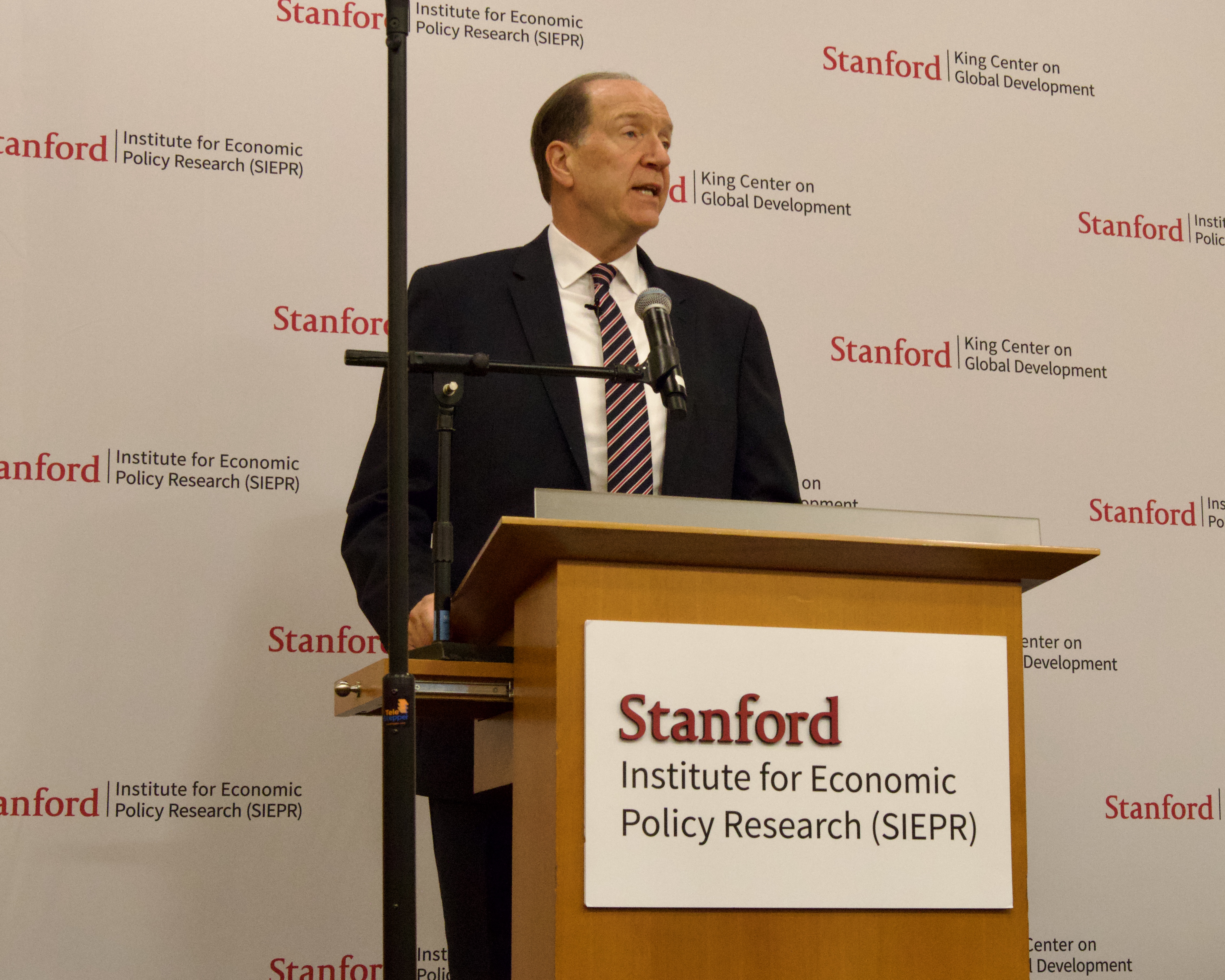World Bank Group President David Malpass explained how current global economic trends endanger the future of developing countries to students and faculty at a Sept. 28 event co-hosted by the Stanford Institute for Economic Policy Research (SIEPR) and the King Center on Global Development.
Malpass, who was appointed to his post in 2019 by former President Donald Trump, recently became the subject of controversy after making comments last week denying humans’ role in climate change. The Biden administration condemned the statements. Malpass said the statements were a mistake, when asked about the situation by moderator Kate Casey, who is an associate professor of political economy.
“I’m not a climate denier,” Malpass said. “It’s clear greenhouse gas emissions caused global warming. The words didn’t come out right.”
Malpass said he did not want to distract from the World Bank’s work to address climate change. According to Malpass, the World Bank is by far the largest funder of climate spending in the developing world: “We have giant teams of people working in countries around the world to find ways to adapt to climate change, which is actually a really difficult task.”
The focal point of Malpass’s talk was an urgent need to address “deteriorating” global economic measures including GDP, poverty and income levels. He identified the core macro-level challenge as new monetary policies after 2008 which he said mostly benefited advanced economies and wealthy individuals in the Western hemisphere.
“Weathering this perfect storm and undoing the recent reversals in development require new macro and micro economic pathways in both advanced and developing countries,” Malpass said. “The urgency is clear in daily news reports of inflation, climate change, civil protests and violence.”
According to Malpass, “The World Bank Group is fully engaged in these challenges, realistic in our assessments, and eager to work on solutions including with all of you participating here today.”
Solutions Malpass called for included greater spending on education, health and grants in developing countries to enable energy and agriculture transitions. He also said it was necessary to broaden the tax base in developing countries and improve collection efficiency and debt relief.
Students at the event said they were inspired to hear about the state of economic development from the president of the World Bank.
“It is so insightful to hear from people who are actually working on the ground, sharing their perspective,” said Anjali Surana ’25, an economics and international relations major who attended the event. “Especially because it’s such an ever-evolving and changing world. And econ is a social science, it’s always evolving.”
Eduardo Duarte M.A. ’24, a masters student in international comparative education, worked in the Brazilian branch of the World Bank before attending Stanford. He said that he attended the event to learn more about the World Bank’s stances on climate change.
Durate said the World Bank and other international organizations, while they have a history, also need to be challenged. As students, researchers and people, “we have to be attentive … and we also have to demand whatever we feel is just from them.”
While Malpass repeatedly called the issues at hand a “crisis,” he ended the event by reminding the audience of their potential to help.
“Recognize that individuals matter in the global system,” Malpass said. “I hope everybody will fan out over the world and do the best you can with the skills that you have and recognize that the world wants everything you’ve got.”
